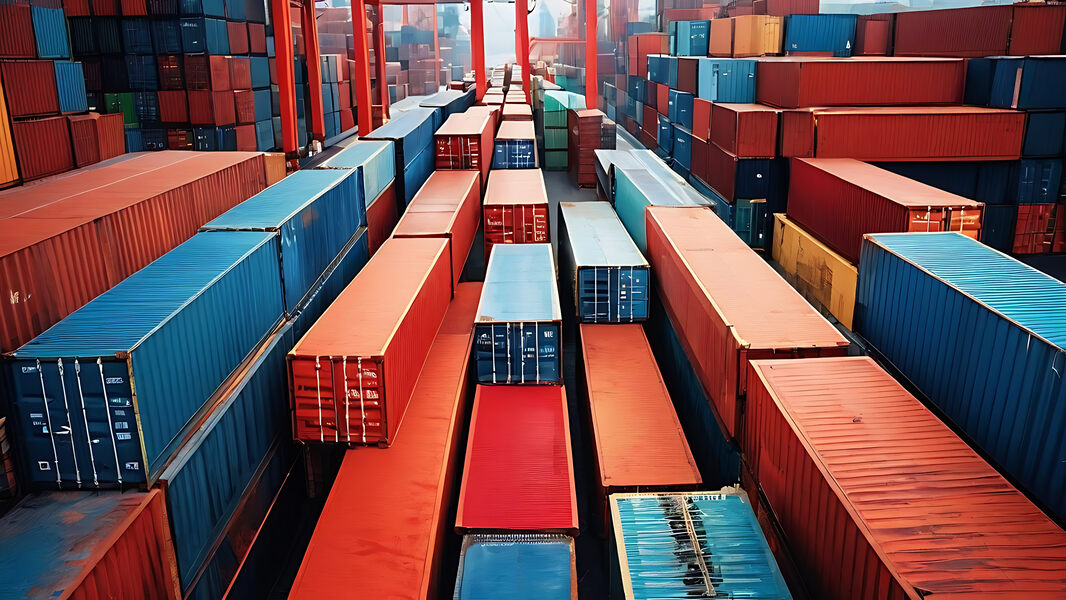
What Switzerland and Singapore have in common
The coronavirus pandemic has thrown into the spotlight the fact that countries have to seek the necessary balance between the preservation of public health and the proper functioning of the economy in their political choices. While the full extent of the economic impact of COVID-19 remains unclear, good governance and appropriate decisions remain as crucial as ever, to ensure competitiveness and prosperity.
Reality check
The results of the 2020 IMD World Competitiveness Ranking show how small economies maintained strong competitiveness in the 2019 to Q1 2020 environment. Switzerland confirmed its upward trend, climbing to third position, while Singapore led the ranking for the second year in a row.
This year’s ranking offers a particularly welcome reality check; competitiveness (and resilience) will be key to economic recovery from COVID-19, one being the necessary complement of the other.
Do Singapore and Switzerland’s results come as a surprise? Not really. Switzerland is known for its solid fundamentals: open economy, political stability, high innovative capabilities, excellent education and talent attraction, sound public finance, low public debt, modern infrastructure and stable currency. It is regularly flirting with the top positions in the international indexes.
For example, it was designated recently the world’s most talent competitive country and world’s most innovative country. With these strengths, it is generally well-prepared to navigate a crisis. However, the magnitude of the pandemic not only puts severe pressure on the economy and society, but also implies a full-scale stress test for government. It is worth dwelling on how Switzerland has dealt with the crisis so far.
Swift and decisive action in response to the crisis
According to IMD’s Professor Arturo Bris, the ability of small economies to cope with a pandemic may be fed in part by the fact that it is easy to find social consensus. In Switzerland, the political culture is characterized by a constant search for balance between different interests and diverse identities in a particularly complex but stable political system.
In the context of the pandemic though, the short distances and high level of trust between the state, the economy and society did ensure that Swiss institutions were agile and effective in dealing with the crisis. They delivered the right and timely response, calibrated and proportionate, as Federal Councillor Alain Berset described recently.
With regard to the economy, the stable situation that Switzerland was enjoying before the crisis – with a solid financial budget, a rich mix of industries and a long-established social partnership between employers and employees – was certainly an advantage. The Swiss government implemented exceptional measures for targeted groups in response to the pandemic totaling CHF 72.2 billion and intended to maintain employment, safeguard wages, support the self-employed and prevent insolvencies due to liquidity bottlenecks.
The national economy could rely on debt-free unemployment insurance and a proven short-time work compensation system. The latter has so far contributed to keeping many people employed, supporting domestic demand and keeping the workforce in shape. Such timely action by the Swiss government in providing crisis loans for small business and liquidity support for startups was widely praised.
Meanwhile the road ahead is fraught with uncertainties.
The importance of free trade and open markets
Switzerland, as an open export-oriented economy with a relatively small internal market, relies largely on international trade and on the health of the global economy. With the bleak outlook of the world tempted with protectionism, it is more essential than ever that countries recognized as leaders in terms of competitiveness come out and speak up in the defense of international trade and multilateralism as the foundation of prosperity.
In a world that is so clearly interdependent, we need more connectivity and not less. Singapore Senior Minister and Coordinating Minister for Social Policies, Tharman Shanmugaratnam stressed that resilience must come from diversifying global supply chains. A broad retreat from globalization is no solution and will leave everyone worse off – and more vulnerable.
As like-minded partners, Switzerland and Singapore could join forces to promote (and preserve) an economically interconnected world.
Reputation, trust and reliability
Amidst so many uncertainties, it remains clear that reputation and trust, built over time, will gain weight as the economic recovery takes shape. Such soft assets will play an increasing role as a factor in boosting competitiveness in the future.
Switzerland is well equipped to adapt itself to post-pandemic realities and maintain its competitiveness at a high level. It can draw on its reputation as a reliable partner, its strengths in attracting and retaining a skilled workforce, and its leadership in future-oriented fields such as artificial intelligence, robotics, fintech, blockchain and personalized health.
Looking to the future, the trends reflected in the 2020 Ranking are encouraging as it seems that small economies have an advantage in terms of resilience in difficult times. In that sense, both Singapore and Switzerland can look forwards with a certain serenity.
Research Information & Knowledge Hub for additional information on IMD publications
With stagnant import volumes since 2021, and import prices at levels below those suggested by fundamentals, foreign exporters face an uphill battle to convert access to the Chinese market into revenues. Notably, the volume stagnation predates the ...
It has become conventional wisdom to view Europe as an economic powerhouse past its prime, overshadowed by the steady advance of the US and meteoric rise of China. Critics cite Europe’s shrinking share of global GDP, excessive regulation, and slug...
The UAE has been making waves recently in the technology world. A $1.5 billion deal between American tech giant Microsoft and Abu Dhabi’s AI champion,G42, seems to mark a shift in global alliances. This deal is significant not just in terms of the...
Inflows of foreign direct investment into China shows worrying trends despite its massive economy. While total FDI appears substantial at $163B in 2023, most growth comes from existing foreign subsidiaries rather than new entrants. Foreign manufac...
Climate change, geopolitical frictions, and supply chain disruptions call for more sustainable trade practices that can withstand the pressures of volatility. But for trade to be sustainable, it must also be resilient. IMD World Competitiveness Ce...
The idea of an EU bond, a common safe asset, has been gaining attention lately, particularly following calls for its introduction this month by former Italian prime minister Mario Draghi.
Research Information & Knowledge Hub for additional information on IMD publications
Research Information & Knowledge Hub for additional information on IMD publications
Research Information & Knowledge Hub for additional information on IMD publications
IMD World Competitiveness Center Report, 14 November 2024, 8th edition
Research Information & Knowledge Hub for additional information on IMD publications
Research Information & Knowledge Hub for additional information on IMD publications
Research Information & Knowledge Hub for additional information on IMD publications
Research Information & Knowledge Hub for additional information on IMD publications
Research Information & Knowledge Hub for additional information on IMD publications
Research Information & Knowledge Hub for additional information on IMD publications
Research Information & Knowledge Hub for additional information on IMD publications


